Sayantani Kar in Mumbai
In the last four-five years, Britannia Industries Ltd has delivered a compounded annual growth of around 20 per cent, as compared to 10-11 per cent in the previous four years.
Arguably, those would be respectable figures, if its portfolio wasn't skewed towards one product and two brands.
Biscuits contribute up to 76 per cent of the company's sales -- BIL reported a 10.22 per cent growth in sales at Rs 3,771 crore (Rs 37.71 billion) for the year ended March 31, 2010 -- and while its Tiger brand contributes the largest volume, the Good Day brand brings in the highest revenue at Rs 1,200 crore or Rs 12 billion (Nielsen, January-December, 2010).
For BIL, therefore, this period is both exciting and challenging. Exciting because it is getting into unexplored categories with innovative product offerings, and challenging because the task of broadbasing one's portfolio is not the easiest of jobs under the sun.
. . .
Britannia: Bumpy road ahead
Image: Vinita Bali.And no one knows that better than managing director Vinita Bali who joined the company in 2005 and assumed her current role in May 2006.
Little wonder, since taking charge she has maintained a low profile in the media, busy as she was with a series of product launches, relaunches and portfolio rationalisation to breathe life into the company's slogan, Zindagi mein life, adopted in 2008.
The idea, in her own words, is to become 'part of the consumer's habitual food choice throughout the day'.
"There is a fundamental shift that Britannia is trying to bring in -- from being a biscuits maker to being a food company," says an FMCG analyst tracking the Bengaluru-based company.
Look at the recent line extensions for proof. Its Tiger brand of fortified glucose biscuits will now also be a chocolate milk drink to denote 'strength, vitality and joyousness among children' points BIL's diary head Vinod Menon.
"It is about building a power brand with a franchise under which a lot of products can be placed," says Bali.
. . .
Britannia: Bumpy road ahead
Image: Britannia's dairy products.Its biscuit brand NutriChoice has been extended from a digestive arrowroot to diabetic-friendly biscuits.
Time Pass, from being just salted biscuits, is now a salted snack product.
Daily Fresh, earlier sold as bread, now extends to dahi with the same distribution arm to support it.
The rest of the products -- biscuits, non-biscuit bakery such as rusk and cake, and other dairy products -- are distributed by the second arm.
Healthy, wealthy, wise
Bali thanks the company's power brands (which the company defines as any brand that does more than Rs 200 crore (Rs 2 billion) in business and lends itself to extension into other categories) for its steady performance.
"Without the support of our seven power brands (Tiger, Good Day, Milk Bikis, Treat, Marie Gold, NutriChoice and 50-50), we can't grow at this rate," she told Business Standard in a recent interview.
. . .
Britannia: Bumpy road ahead
"All our power brands have witnessed a growth rate over 20 per cent in the recent past and will keep this momentum in the near future.
"Also, our new products such as NutriChoice have supported this trend due to their high margin returns."
BIL's latest venture -- its first full-meal promise in the Rs 500-crore (Rs 5-billion) branded market for breakfast foods -- is called Healthy Start. These ready-to-cook products tap into its expertise in grains, thanks to its long experience in the bakery business.
"Our work with cereals and the aim to include nutrition in our products led us to this category," says Atul Sinha, vice-president (new business development), BIL.
It will stay out of cold breakfast options such as cornflakes for now, given the average Indian's preference for hot food.
. . .
Britannia: Bumpy road ahead
"We think our (breakfast) products have a distinct differentiating quality compared to other available products. We also don't think the space is crowded in comparison to 300 biscuit brands and three to four big companies in salty snacks category.
"As far as revenue is concerned, we have to wait for two to three quarters before giving any revenue estimate," Bali told Business Standard recently.
Mixes of upma (semolina), poha (flattened rice), porridge and oats with spice mixtures are made with low starch grains that BIL's existing grain suppliers helped it identify.
The company won't roll out the new range across the country in a jiffy. Says Bali, "Mumbai has a large cross-section of ethnic communities, and their reaction to our products will give us a fair idea about the way forward.
"It is also the metro where most people miss breakfast or have it on the go."
. . .
Britannia: Bumpy road ahead
The current test-marketing phase in Mumbai will help it fine tune the product, if necessary, before it takes a national call. "We want to go through a few purchase cycles before rolling it out nationally," she adds.
Experience counts
Not that Britannia is new to diversification. Starting off as a biscuit-maker in 1918, the company entered the dairy segment in 1997 and launched salted snacks in 1999.
Unfortunately, all this did not do much to help the company derisk its portfolio -- biscuits contributed about 80 per cent of its revenue even until two years ago.
So while biscuits saw a steady stream of extensions and moved on to become its power brands, BIL had to withdraw a number of products in other categories after they failed to find favour with the consumer.
One category where it has been largely successful is dairy, which now contributes 6 per cent to its turnover.
Though aimed at the urban markets, it also complements BIL's bid to play a bigger role on breakfast tables.
"Milk consumption will grow with oats, for example," says BIL's Menon.
. . .
Britannia: Bumpy road ahead
Image: Policemen stand inside the first cash-and-carry Wal-Mart store during its inauguration in Amritsar.Photographs: Munish Sharma/Reuters
"Cereals and milk constitute 50-60 per cent of the daily food intake of the (urban) consumer and we are looking at these two pillars to grow. To grow the milk business, we will concentrate on derivatives of milk."
Analysts point out that BIL is expected to break even in dairy in 2011.
Unlike countries such as China, which is not a milk-consuming country, India has traditionally had a battery of indigenous dairy products across regions, according to Rabo India dairy analyst Shiva Mudgil.
Where India lags behind is value addition in the branded segment. Fellow BRIC nation Brazil, for instance, has a good base of value-added branded products.
"In the next 10 years, value-added products will have a significant share in the total dairy business in India," says Mudgil.
. . .
Britannia: Bumpy road ahead
A large vegetarian population resorting to milk variants for their protein requirements would lead to an increased spending on milk products as shown by the National Sample Survey Organisation data (2007-08).
The NSSO data puts milk product spending at 18.4 per cent of an urban household's total spending, growing rapidly over the last five years.
According to Rabo India data, packed liquid milk and ghee comprise the biggest chunk of the Rs 450 billion organised dairy business in India. Cheese, yoghurt, ultra-high temperature milk are Rs 5-10 billion each now.
But in this market value addition will be key because competition is intense.
Besides Nestl , Amul and Parag Milk Food, there are many regional cooperatives and international players who are looking at this segment aggressively.
. . .
Britannia: Bumpy road ahead
Image: Nusli Wadia.Photographs: Rediff Archives
In 2005, Nusli Wadia had admitted as much to Business Standard, saying that Britannia's foray in selling fresh milk had been a mistake leading to the company's resolve to concentrate on value-added milk products.
Now Bali says, "We don't want to sell a commodity, milk in pouches was just that. We had entered dairy in 1997, but Britannia did not do anything seriously then.
"It is only in the last five years that we have doubled our revenue in this segment because now it presents us with a big opportunity. Our portfolio boasts of products with some value addition or the other."
Menon points out that even the milk it now markets -- UHT milk in cartons -- offers the additional benefits of being zero fat, zero cholesterol.
The dairy portfolio also includes dahi (yoghurt) and cheese which are fortified with additional benefits, besides butter and milk whitener.
BIL has made a renewed bid in the milk-based drinks segment, which Amul rules with its Kool range of flavoured milk.
. . .
Britannia: Bumpy road ahead
BIL had tried something similar when it first entered the segment in 1999 with ZipSip. Even after a relaunch in the year 2000, the products did not find too many takers, leading the company to withdraw it soon after.
This time around BIL is harping on the health proposition rather than the 'attitude' like Amul is doing (Dude, where's the doodh goes Amul's ad).
Both TigerZor Choco Milk and Actimind which it is testing in the southern markets, promise additional nutrients, and downplay the convenience factor.
While Actimind, available in mango and strawberry flavours, promises a sharp mind, TigerZor is chocolate-flavoured and talks to kids and their mothers who might find it convenient to pack the small bottles in their lunchboxes, says Menon.
. . .
Britannia: Bumpy road ahead
This segment will only get more competitive as more branded players troop in. BIL's erstwhile partner in bakery -- Danone -- has upped the ante with its range of flavoured yoghurt and milk.
Mudgil of Rabo India points out that some private players are setting up their own dairy farms to source good quality milk to churn out value-added products. Some are even replicating the cooperative way of sourcing milk from village collection points.
Bumpy road ahead
There are other issues.
While the investment in backend infrastructure in this segment is high, BIL remains exposed to price and supply fluctuations which cooperatives are better equipped to handle.
BIL was smarting from high input prices in its biscuits business when it took a hit on its margins despite a firmer control over wheat and sugar sourcing than it has over dairy production.
. . .
Britannia: Bumpy road ahead
Image: A cup of tea and biscuits.But what works in its favour is the fact that the brand name Britannia has the kind of equity that many regional cooperatives with a strong back-end will take years to build.
"While they can price their products low and distribute well to push their products, Britannia can create a pull in the market by the sheer strength of its brand and promotions," points out an analyst.
BIL has seen its shares erode in certain categories.
Its Milkman brand of cheese has shown a steady slide in Nielsen's estimates of market shares.
This is one segment which has seen competition intensify in recent times. Rahul Akkara, vice-president, marketing, Parag Milk Foods, which owns the Gowardhan brand of dairy products, says, "We are the late entrants, hence we realise we have to invest a lot in branding."
. . .
Britannia: Bumpy road ahead
Akkara points out that cheese is among the least promoted products categories in this segment.
"It leaves us with a lot of scope in innovating with cheese. We have come up with new variants such as readymade shredded cheese, flavoured cheese and so on which only international brands have provided so far."
The fact that its supply chain goes right back into the farm allows for flexibility in pricing, points out Akkara.
While BIL tries to play to its strengths, there are challenges it can't wish away.
In biscuits, while players such as Unibic, United Biscuits and Kraft are still in the initial phase of launch, Parle Products and ITC have seen heady growth in their premium products over the last year or so.
. . .
Britannia: Bumpy road ahead
Parle 20-20 has grown its share in the Rs 3,500-crore (Rs 35-billion) cookie market to 15 per cent -- up from 7 per cent in 2009 (Nielsen, January-December, 2010) -- GoodDay registered a decline in share from 43 per cent (2009) to 34 per cent in 2010.
For the record, the cookie market is the second largest (but more premium) after the glucose biscuit segment, followed by cream and Marie.
Another challenge is in the salted snacks business. "Our portfolio has been dominated by sweet snacks; but we are adding to our repertoire of salted snacks," says Bali.
Its Time Pass -- earlier known as Snax -- baked snacks will be up against competition from the likes of PepsiCo, ITC and Parle Agro, besides regional players -- and some with national ambition -- like Haldiram's.
While the market presents a fantastic opportunity -- currently pegged at Rs 4,500 crore (Rs 45 billion) and is growing at 15 per cent -- it's a difficult one to crack.
. . .
Britannia: Bumpy road ahead
Marico has had to withdraw its Saffola Zest because of the lukewarm response and other baked snack brands are locked in a bitter battle for market share (sales of the different players range from Rs 27 crore (Rs 270 miillion) to Rs 39 crore (Rs 390 million), up from single digits in 2009).
Mayank Shah, group product manager, Parle Products, the largest biscuit maker in the world, says, "Biscuits used to be the choice for snacking earlier.
"Now there are other options in packaged foods." Parle has a range of salted snacks such as wafers and snack sticks. Shah says Parle Chips, known as Musst earlier, has picked up about 8 per cent since relaunch.
The crowd there does not seem to worry Bali.
"If you take the growth rate in salted snacks into account, there are hardly any players around, leave alone it being a saturated market." Adds Atul Sinha, "We wanted to consolidate the product under a brand that was more relevant."
So there you have it. For urban markets innovative and differentiated foods will be the focus; in rural markets BIL will play around with pack sizes and increase its distribution spread with an eye to ramping up volumes.

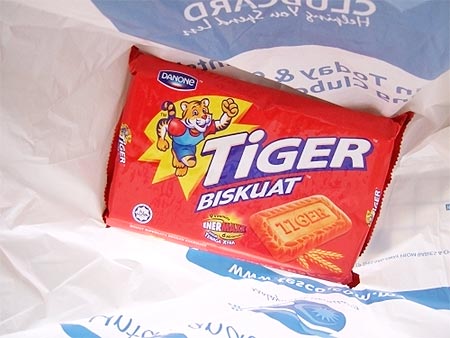

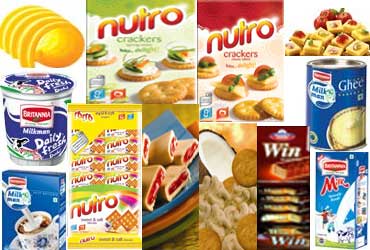
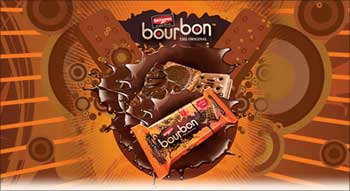


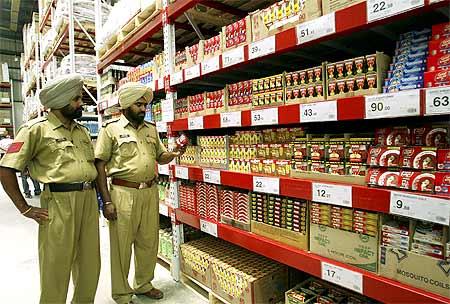


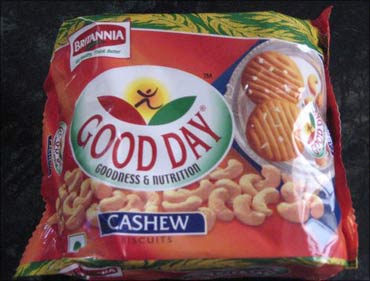
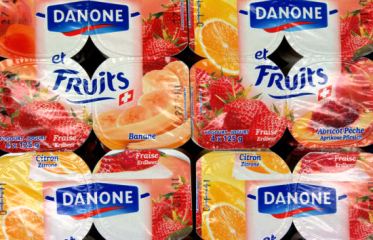
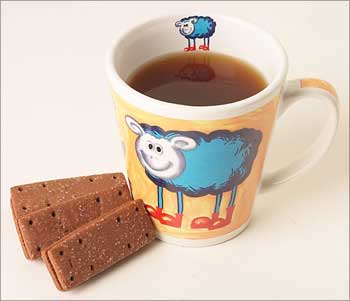
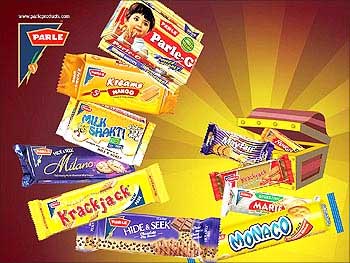

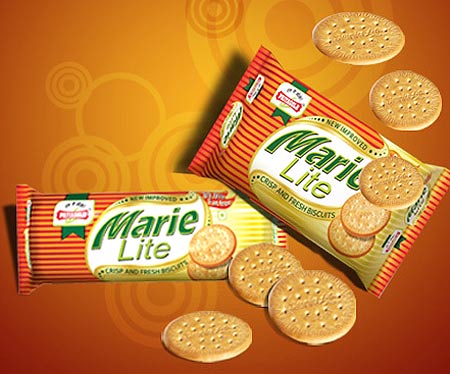

article